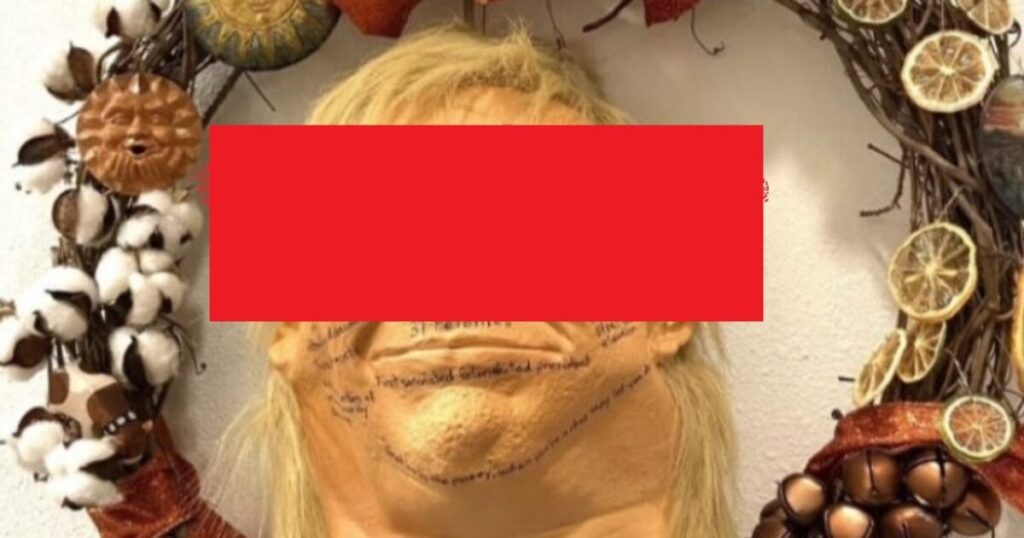The recent display by the Fountain Hills Democratic Club has sparked significant controversy and debate within the community, particularly in the context of the ongoing political polarization in the United States. The centerpiece of the uproar was a Christmas wreath featuring a decapitated head resembling former President Donald Trump, which was hung in the Fountain Hills Community Center. This provocative display was a direct response to the Republicans in the community who were showcasing Christmas trees adorned with pro-Trump decorations. The Democrats aimed to assert their presence and express their disdain for the political climate, but the manner of this expression drew both staunch criticism and a mix of approval among community members.
The wreath, intriguing in its audacity, displayed phrases and terms that condemned Trump, claiming he was guilty of various alleged crimes including “racketeering,” “obstruction of justice,” and “conspiracy to steal the 2020 election.” This inflammatory representation not only placed the Democratic Club’s views front and center but also served to amplify the existing tensions present in this politically charged atmosphere. While the intention may have been to challenge the Republican display, the method of execution raised ethical questions about decorum and respect during a festive season typically associated with goodwill and unity.
Despite the immediate backlash, which led to the wreath being removed shortly after its installation, the Fountain Hills Democratic Club defended their decision, stating it was an exercise of free speech. They later acknowledged the controversial nature of their display and articulated that it was meant to make a statement, albeit for a limited time. The quick removal of the wreath suggested a recognition of its potential to alienate rather than unite, especially during a holiday characterized by inclusivity and celebration.
Community reactions varied widely. Among the critics, one woman voiced her disappointment asking how such a display would affect visitors and the community’s broader image. Others defended the action, claiming it was time to “fight fire with fire” in the ongoing political discourse. Comments on social media ranged from outright condemnation of the display to celebrating it as humorous and a needed pushback against the Trump-centric messaging of local Republicans. This dichotomy illustrated the deep divisions within the community, reflecting the national climate where discussions about politics can often lead to heated and polarizing exchanges.
In addition to the controversy over the wreath, further comments and suggestions emerged on social media, reflecting a range of proposed themes for future decorations. Some expressed the intent to create trees featuring sexual themes or LGBTQ+ symbols, suggesting that the Democrats might continue to escalate this rhetorical battle. The proposal to incorporate these themes into holiday decor has the potential to hurt the community’s cohesiveness even further, showcasing the complexities and potential consequences of political expression in public spaces.
Local political figures weighed in as well, with Fountain Hills Councilman Allen Skillicorn expressing shock at the “inappropriate” display, even while defending the group’s right to free speech. He underscored the idea that freedom should not equate to disrespecting the beliefs of others during a season marked by Christian celebration. Skillicorn’s comments highlighted the underlying issue: the intersection of political expression and community values, which remains a contentious debate in today’s climate. Ultimately, the incident illuminates the broader societal challenges surrounding discourse, decorum, and the essence of free expression amidst an increasingly divided America.

